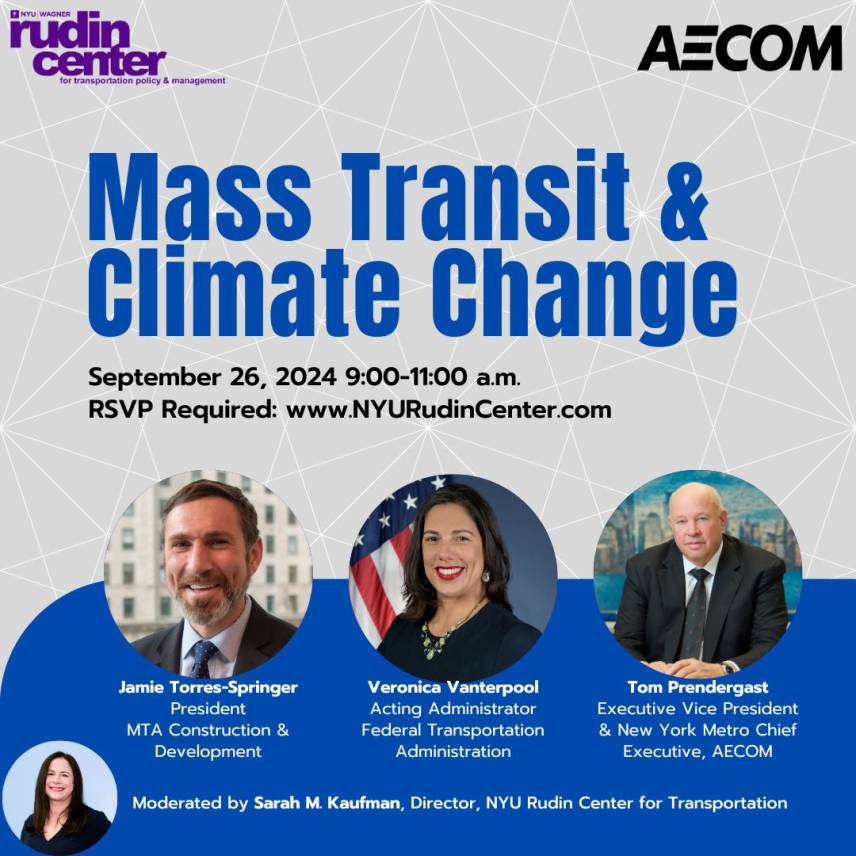Mass Transit & Climate Change
Public transportation plays a critical role in the fight against climate change. Transportation is the single largest source of greenhouse gas (GHG) emissions, accounting for about 28% of the U.S. total. Of that, public transportation contributes little, but it plays a critical role in enabling mode shift. Reducing emissions and improving air quality in all modes, including transit, is also important to counter the effects of climate change. With excessive flooding and extreme heat on the rise, climate change is challenging our transportation networks. In response, the MTA recently published its Climate Resilience Roadmap, a comprehensive framework to fortify the transit system against the impacts of climate change. With increased funding, FTA is expanding public transportation’s role in mitigating climate effects, making a record investment in low- and no-emission technology, promoting more equitable transit-oriented development and fostering resiliency through grant programs. The NYU Rudin Center for Transportation presents an expert panel to discuss strategies that will enable our transit system to adapt and expand.
Panelists
Veronica Vanterpool, Acting Administrator, Federal Transportation Administration
Jamie Torres-Springer, President, MTA Construction & Development
Tom Prendergast, Executive Vice President & New York Metro Chief Executive, AECOM
Moderator: Sarah M. Kaufman, Director, NYU Rudin Center for Transportation
This event is sponsored by AECOM, with additional support from NYU C2SMARTER, a Tier 1 University Transportation Center, and the NYU Climate Change Initiative Seed Grant.
